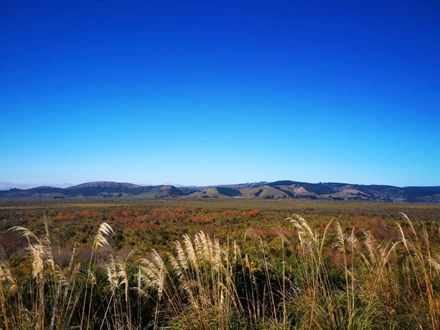Through the Sustainable Business Network (SBN) The Sinclair Wetlands Trust recently received a $286,391 funding boost from the Government’s Jobs for Nature Fund. The Fund is administered by the Department of Conservation. It was created to respond to pandemic-driven regional unemployment and the declining health of New Zealand’s waterways and landscapes.
This has enabled the Trust to contract four full-time staff over the last few months. It's accelerating the restoration of the wetlands to their former glory. It’s revitalising the mahika kai (food gathering) resource.
Glen Riley is the wetlands coordinator. He says: “This partnership has greatly streamlined the process, SBN is highly organised and diligent with its communications, deadlines and act as the ‘go between’ between our funders and our delivery. Without this support we’d be buried in admin! This model is very successful and one worth continuing.”
“We’ve been able to tackle many of the things that we have wanted to do for a long time. In the past our crews have all been volunteers. We attracted hundreds of volunteers each year, but only ever for short stints.
“The majority came from overseas, where English was not their first language. Most had never carried out these sort of tasks before. Some tasks, like weed control, weren't appropriate for them, so they didn't happen. Managing paid staff is more appropriate, efficient, productive and relatively easy. Ultimately, the health of the wetland is showing the biggest benefits.”
“Volunteers would stay a couple of weeks at most. I would walk them to the work site every day. I would tell them about wetlands, our project, the history, the cultural values and the restoration aims. We'd induct them to our health and safety plans. And we'd explain, demonstrate and oversee the mahi.
“To keep it interesting and engaging we'd also tell them the stories from the site. We'd teach them about native taonga, flora and fauna. We'd make sure they were having a good experience. But it takes up a lot of time. I can now be much more efficient. Our team are professionals. They’ve been trained and are now experienced in our restoration tasks. After hatching a plan the team can go out and do it!”
The 315 hectare site requires significant physical labour to enhance its biodiversity. It's also been made accessible as an environmental education resource for local people. Like many similar places, it’s something of a pilot for the nature restoration work that needs to happen all over New Zealand. That’s where the Jobs for Nature progress is perhaps most valuable. It’s boosting the opportunities and skills for a whole new wave of professional conservationists.
Glen says: “For me that’s the most rewarding part of what we’re doing. This can be a job, it can be a long term career path. People can have a livelihood, pay their bills and feed the family doing this sort of thing. Environmental work has always tended to be undervalued. There’s been some stigma around it. There’s an assumption that it’s straight forward. That anyone can do it. There’s been an expectation that people should do environmental enhancements for free as a volunteer.”
When Covid restrictions allow the Trust is still hosting company and volunteer planting days. But it now also has the help of its paid staff for educating and training the public. Volunteering, community engagement and education are important parts of raising awareness about wetlands, cultural values and our connection to the environment. But relying on volunteers to complete significant restoration projects isn’t sustainable.
As well as his coordinator contract to the Trust Glen runs his own business, Habitat Restoration Aotearoa (HRA). This has enabled him to extend the original 10 week period of the employees Jobs for Nature boost. HRA has been able to employ some participants for other planting and restoration projects.
“We continue to seek meaningful work for our crews," says Glen. "We have secured contracts with a range of clients. They include the Department of Conservation, Fonterra, Fish and Game, Meridian Energy, Pomahaka Watercare Group and private landowners.”
“The original funding was only for 10 weeks. To ensure their job security our original Jobs for Nature employees had to be looking for something else pretty much as soon as they started with us.”
One participant came with some training as a field ranger. This new work experience helped them get a full time permanent role as a conservation ranger. Others have gained a soft landing from Covid-driven job losses in hospitality and tourism. One participant entered tertiary education, after finding the outdoor life wasn’t for them - a valuable experience in itself.
There’s massive amounts of work to regenerate our waterways and landscapes. The Sinclair Wetland Trust, Habitat Restorations Aotearoa and SBN are hoping for ongoing government support to continue to professionalise and expand this sector.

